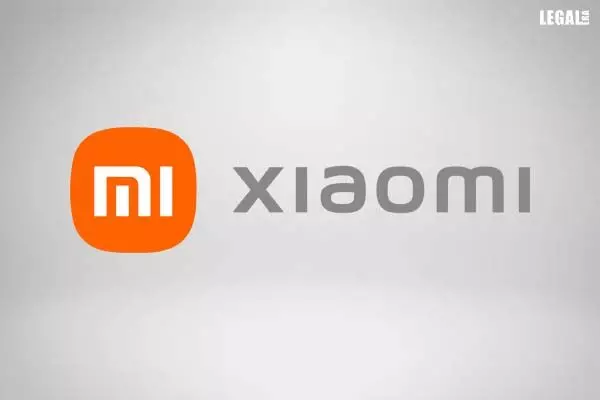- Home
- News
- Articles+
- Aerospace
- Artificial Intelligence
- Agriculture
- Alternate Dispute Resolution
- Arbitration & Mediation
- Banking and Finance
- Bankruptcy
- Book Review
- Bribery & Corruption
- Commercial Litigation
- Competition Law
- Conference Reports
- Consumer Products
- Contract
- Corporate Governance
- Corporate Law
- Covid-19
- Cryptocurrency
- Cybersecurity
- Data Protection
- Defence
- Digital Economy
- E-commerce
- Employment Law
- Energy and Natural Resources
- Entertainment and Sports Law
- Environmental Law
- Environmental, Social, and Governance
- Foreign Direct Investment
- Food and Beverage
- Gaming
- Health Care
- IBC Diaries
- In Focus
- Inclusion & Diversity
- Insurance Law
- Intellectual Property
- International Law
- IP & Tech Era
- Know the Law
- Labour Laws
- Law & Policy and Regulation
- Litigation
- Litigation Funding
- Manufacturing
- Mergers & Acquisitions
- NFTs
- Privacy
- Private Equity
- Project Finance
- Real Estate
- Risk and Compliance
- Student Corner
- Take On Board
- Tax
- Technology Media and Telecom
- Tributes
- Viewpoint
- Zoom In
- Law Firms
- In-House
- Rankings
- E-Magazine
- Legal Era TV
- Events
- Middle East
- Africa
- News
- Articles
- Aerospace
- Artificial Intelligence
- Agriculture
- Alternate Dispute Resolution
- Arbitration & Mediation
- Banking and Finance
- Bankruptcy
- Book Review
- Bribery & Corruption
- Commercial Litigation
- Competition Law
- Conference Reports
- Consumer Products
- Contract
- Corporate Governance
- Corporate Law
- Covid-19
- Cryptocurrency
- Cybersecurity
- Data Protection
- Defence
- Digital Economy
- E-commerce
- Employment Law
- Energy and Natural Resources
- Entertainment and Sports Law
- Environmental Law
- Environmental, Social, and Governance
- Foreign Direct Investment
- Food and Beverage
- Gaming
- Health Care
- IBC Diaries
- In Focus
- Inclusion & Diversity
- Insurance Law
- Intellectual Property
- International Law
- IP & Tech Era
- Know the Law
- Labour Laws
- Law & Policy and Regulation
- Litigation
- Litigation Funding
- Manufacturing
- Mergers & Acquisitions
- NFTs
- Privacy
- Private Equity
- Project Finance
- Real Estate
- Risk and Compliance
- Student Corner
- Take On Board
- Tax
- Technology Media and Telecom
- Tributes
- Viewpoint
- Zoom In
- Law Firms
- In-House
- Rankings
- E-Magazine
- Legal Era TV
- Events
- Middle East
- Africa
Xiaomi Pleads Before CCI To Recall Antitrust Report On Flipkart

Xiaomi Pleads Before CCI To Recall Antitrust Report On Flipkart
The move could delay the investigation that began in 2021
China's electronics company Xiaomi has requested the Competition Commission of India (CCI) to recall a report alleging that it and Walmart's Flipkart breached competition laws, citing the inclusion of commercial secrets.
Xiaomi told the antitrust body that the investigation report on Flipkart contained sensitive business data on the smartphone company. It was supposed to be redacted when the document was shared with parties.
The Commission does not make investigation reports public. These are shared only with parties to the case. A recall requires parties to return the report which undergoes further review for redactions.
The competition watchdog found that e-commerce giants Amazon and Flipkart preferred select sellers, prioritizing certain listings. They colluded with companies like Xiaomi to launch phones exclusively on their websites.
South Korea's Samsung and China's Xiaomi are India's biggest smartphone players, holding an almost 36 percent market share, with China's Vivo at 19 percent.
However, Xiaomi was not concerned with data in the report made on Amazon, in which the investigators stated the two companies colluded on online sales, breaching the antitrust laws. It wanted the Commission to ask the parties to return the report and destroy any copies, allowing the authority to redact the sensitive information and reshare the reports.
The CCI’s Flipkart report said that the Indian units of Samsung, Xiaomi, Vivo, Motorola, Lenovo and Realme indulged in exclusive product launches on Flipkart's shopping website. It stated this was "against free and fair competition and the interest of consumers.”
In August, the Commission recalled an antitrust report on Apple after the company similarly complained that commercial secrets had been disclosed. It found that the US company exploited its dominant position in the market for app stores on its iOS operating system.



